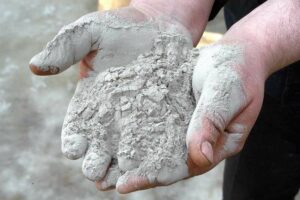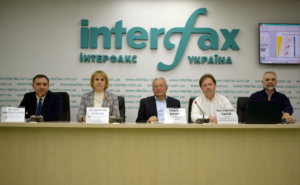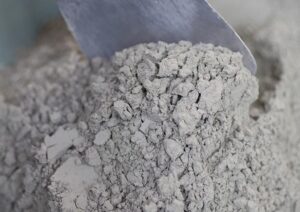
As part of anti-dumping investigations, duties are more effective for economic development, according to Pavlo Kachur, head of Ukrcement.
“There are two mechanisms for protecting the market: anti-dumping duties and price proposals. The difference between them is that the additional delta that equalizes prices in one case goes to the domestic budget, and in the other case goes to the foreign producer. In today’s situation, when every hryvnia of revenue to the state budget is very important, when this hryvnia is used for defense, when domestic consumption in Ukraine has fallen significantly, the mechanism of anti-dumping duties is much more patriotic, because it additionally fills the state budget,” he told Interfax-Ukraine on the sidelines of the conference ‘Trade Wars: The Art of Defense’ in Kyiv on Tuesday.
Kachur stressed that protecting the interests of Ukrainian producers in wartime is not only the right but also the duty of the state.
As reported, the Interdepartmental Commission on International Trade (ICIT) is reviewing anti-dumping measures on imports of cement from Russia, Belarus, and Moldova to Ukraine in connection with the expiration of their validity. Earlier, in 2019, the ICIT imposed anti-dumping duties on imports of cement clinker and Portland cement under codes 2523 10 and 2523 29 to Ukraine at the following rates: 57.03% on cement from Belarus; 94.46% on cement from Moldova; 114.95% on cement from Russia. The duties were imposed for a period of five years and extended for one year in 2024.
https://interfax.com.ua/news/economic/1073234.html?utm_source=telegram

In January-March 2024, companies belonging to the Ukrcement association increased cement production by 46.3% compared to the same period in 2023, up to 1 million 477.9 thousand tons of cement, the Ukrcement press service reports.
According to the association, the figure for January-March this year almost reached the same period in pre-war 2021, when the volume of cement produced amounted to 1.56 million tons.
At the same time, clinker production in the first quarter of 2024 decreased by 8.5% compared to the first quarter of last year and amounted to 878.5 thousand tons.
As reported, in 2023, the total volume of cement produced in Ukraine increased by 37% compared to the previous year and amounted to 7.4 million tons.
The Ukrcement Association was established in January 2004 through the reorganization of the Ukrainian Concern of Enterprises and Organizations of the Cement Industry Ukrcement. The Association comprises five groups of companies including nine cement enterprises.

Cement, as the main building material, will be key to rebuilding Ukraine. The best way to choose high-quality cement is to choose factory cement.
The key to cement quality in accordance with EU Regulation 305 is careful control at all stages of its production.
On June 23, 2022, Ukraine officially received the status of an EU candidate.
We continue to work towards the realization of our goal of providing the construction industry with high-quality and safe building materials, increasing the competitiveness of Ukrainian construction products, and promoting innovative industrial development.
The cement industry was one of the first to adopt EN regulatory standards for cement, even those already translated and adopted into Ukrainian (Order 391 of 27.12.2023 by UkrNDNC).
Today, in Ukraine, at the choice of the manufacturer, cement can be produced according to the Ukrainian DSTU B V. 2.7-46:2010 or the European standard DSTU B EN 197-1:2015.
To inform consumers, Ukrcement’s website – in the ASSORTMENT / CONSUMER section – contains materials about the cements available on the market, including cement cards containing data on the composition, characteristics, properties of cement and its intended use.
https://ukrcement.com.ua/2016-02-07-16-14-53/asortyment.html
Given that the most popular types of cement produced by all manufacturers in 2022-2023 were cements with slag: PC II/A-S 400, PC II/A-S 500, here is an example of one card.
Portland cement with slag PC II/A-S 400 is called Portlandslag cement CEM II/A-S 32.5 according to the European standard.
It contains:
Clinker: 80-94%.
Granulated blast furnace slag S (S): 6-20%
Additional components: 0-5%
PC II/A-Sh-400, according to tests in accordance with DSTU B V. 2.7-46:2010, has:
– 7 days – early strength ≥ 20 MPa (P* – days ≥ 20 MPa);
– 28 days – standard strength ≥ 40 MPa;
CEM II/A-S 32.5 according to tests in accordance with DSTU B EN 197-1:2015:
– 7 days – early strength ≥ 16 MPa (P* – 2 days ≥ 10 MPa);
– 28 days – standard strength ≥ 32.5 MPa ≥ 52.5 MPa.
Such cement may have the designations P-H and R in its name:
H – based on clinker of normalized composition
P – high early cement strength – 2 days ≥ 20 MPa
R – class with high early strength – 2 days ≥ 10 MPa
The main properties of PC II/A-S-400 (CEM II/A-S 32.5) cement are high early strength, uniform strength gain, water resistance and frost resistance.
Cement of this brand (type) is used for residential construction, as well as for winter concreting and for the production of concrete of strength class B7.5 – B30, foundations, floors, paving slabs, construction of monolithic structures and hydraulic structures.
In 2023, the Law of Ukraine “On placing construction products on the market” (EU Regulation 305) came into force.
The two regulations will be in force simultaneously until 2025: The Law of Ukraine “On the Placing of Construction Products on the Market” (EU Regulation 305) and the Technical Regulation (as amended by the Resolution of the Cabinet of Ministers of Ukraine No. 347 of March 22, 2022).
But the domestic producer is at a disadvantage to the importer.
Today, in Ukraine, a domestic producer cannot go through the entire procedure according to the Law of Ukraine “On the Provision of Construction Products on the Market” for cement manufactured according to European standards, because there are no conformity assessment bodies in Ukraine in accordance with the requirements of Regulation 305. If a Ukrainian manufacturer undergoes a conformity assessment in Europe and draws up a declaration of performance, this declaration is not valid in Ukraine, as the law states that the manufacturer must obtain a certificate from a domestic conformity assessment body to draw up the declaration. At the same time, imports of products under EU declarations with CE marking are allowed under CMU Resolution 347 of 22.03.2022.
The Ukrainian cement industry exports products to neighboring countries, including the EU. This demonstrates high quality standards, compatibility with EU standards and competitiveness.
Ukrcement’s member companies have technical control departments and modern accredited laboratories for all tests of incoming raw materials and finished products.
The cement industry is probably the only heavy industry in Ukraine where players have modernized their production facilities to meet the required quality and quantity of products.
Cement, as the main building material, will be key to Ukraine’s recovery.
Ukrcement, the Association of Cement Producers of Ukraine, includes 5 groups of companies – 9 cement enterprises, 8 out of 9 cement plants are preserved and ready to work (Baltsem PJSC was in the war zone, was damaged and is not working now), but production depends on market demand. Unfortunately, the market is not yet operating at full capacity.
In 2021, cement production in Ukraine was 11.005 million tons, while consumption was 10.5 million tons. In 2022, production decreased by 51%, primarily due to falling demand, consumption was 4.3 million tons. In 2023, cement production was 7.43 million tons, which is 37.5% more than in 2022, but we have not yet reached the indicators of 2021, cement producers operated at only 60% of their real capacity, cement consumption in 2023 was 6.165 million tons. We expect that the reconstruction and recovery programs that have already started in Ukraine will contribute to the stability of growth dynamics.
We are confident that these programs will be fully operational once the war is over. It won’t be an instantaneous recovery to maximum consumption. The market will take 4-5 years to warm up. Demand for construction materials will increase by 30% over the pre-war level.
We can say that Ukraine has its own high-quality cement products that meet European standards and quality requirements. Producing plants are responsible for every ton of cement produced with their reputation. They constantly invest in equipment, processes, personnel and their development in order to supply high-quality products and provide impeccable service to their customers. The best way to choose high-quality cement for the reconstruction of Ukraine is to choose factory cement* produced by full-cycle companies – proven manufacturers to whom you can trust your safety.
The original products of Ukrcement Association members are packaged only in bags made of corrugated, textured paper under their own brands: IFCEM, CEMARK, KRYVYIRIGCEMENT, Dyckerhoff Cement Ukraine.
* Factory cement is cement produced by full-cycle companies – IFCEM, Cemark, Dyckerhoff Cement Ukraine, and Kryvyi Rih Cement!

Cement consumption in the domestic Ukrainian market in 2023, which increased by 17% compared to 2022 and reached 5.4 million tons, will continue to grow moderately, according to Pavlo Kachur, chairman of the Ukrcement Association.
“Even in a state of war, we have undergone some adaptation. If 2022 was a shock year, and our cement consumption dropped to 4.6 million tons of cement per year against 10.5 million tons the previous year, in 2023 we adapted to the situation and reached 5.4 million tons. I think this is a good growth for wartime. I don’t think there will be such a jump in 2024, but we will probably reach 6 million tons of domestic cement consumption,” Kachur said at the roundtable discussion “Building Materials. Preparedness for Market Needs for Recovery” at Interfax-Ukraine on Tuesday.
In addition, at the end of 2023, exports amounted to 1.24 million tons of cement, while imports amounted to 23 thousand tons of special cements that are not produced in the country.
According to Kachur, the potential for cement production by enterprises in Ukraine today is 13.6 million tons of cement, while current financial and human resources provide for consumption of 12.5 million tons. Despite the ability of Ukrainian companies to fully cover the market’s needs, it makes sense to plan to expand production, he said.
“We are also preparing for other options. Processes may overlap, and one of them may be the negotiation process with the European Union. If it is successful, European infrastructure projects may also take place during the recovery period. This may lead to increased cement consumption, and we must be prepared for this,” said the head of Ukrcement.
The expert noted that production could be increased in three stages: the construction of new clinker kilns and capacity expansion, the restoration of plants in Balakliya and Kramatorsk, and the construction of new cement plants. The two companies are already considering the construction of two new clinker kilns, which will increase their cement production capacity by 2.4 million tons, but the construction will be launched after they reach the consumption level of 10.5 million tons of cement.
Kachur also emphasized the importance of localizing production in the recovery prospects and protecting the Ukrainian market.
“I support the thesis of maximum localization. This is the only way for Ukraine’s economy to develop. But it is also important to protect our market. We realize that the countries that are donors of funds for the recovery can also supply construction materials. However, I believe that we should have a separate policy for countries that are not on the side of supporting Ukraine today, during the war. We need to think about how to treat them if, after the war, they want to participate in the reconstruction with their materials. I think it would be unfair if they get the opportunity to make money on the Ukrainian market,” he said.
The Ukrcement Association was established in January 2004 through the reorganization of the Ukrainian Concern of Cement Industry Enterprises and Organizations Ukrcement.

Ukrainian-made cement should become a key material for reconstruction, and at the peak of reconstruction the market could reach 15 million tons of products, or more than $1 billion a year, according to Ukrcement.
“In the production of building materials, we can really compete with foreign producers by taking advantage of logistics. In addition, the average price of cement in Ukraine is more than 30% lower than in other Central and Eastern European countries. Tales of “cheap imports” are just private interest,” the association said.
At the same time, the cost of cement has increased significantly over the past three years. According to Ukrcement, since 2020, the cost of energy has increased by more than 200%, coal by 280%, and transportation by 317%. At the same time, energy and logistics account for 72% of the cement production cost structure.
The association believes that the state has two main tasks in managing the recovery: maximum transparency in the selection of contractors and localization.
The potential of Ukraine’s cement industry is 13.6 million tons of cement annually, said Lyudmyla Krypka, executive director of the Ukrcement Association. At the same time, companies are preparing for consumption growth and are planning to expand their capacities.
“The cement industry is probably the only heavy industry in Ukraine where players have modernized their production facilities to meet the quality and ensure the required production volumes. We are preparing for a possible increase in cement consumption. At least two companies already have plans to build additional clinker kilns,” the expert told Interfax-Ukraine.
Ukrcement Association was established in January 2004 through the reorganization of the Ukrainian Concern of Cement Industry Enterprises and Organizations Ukrcement.